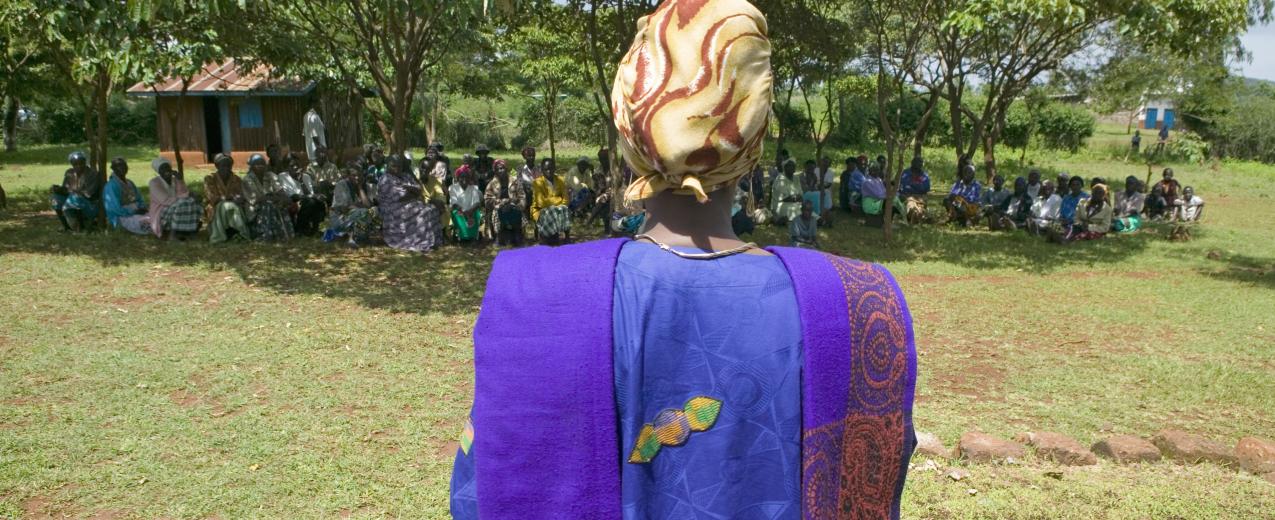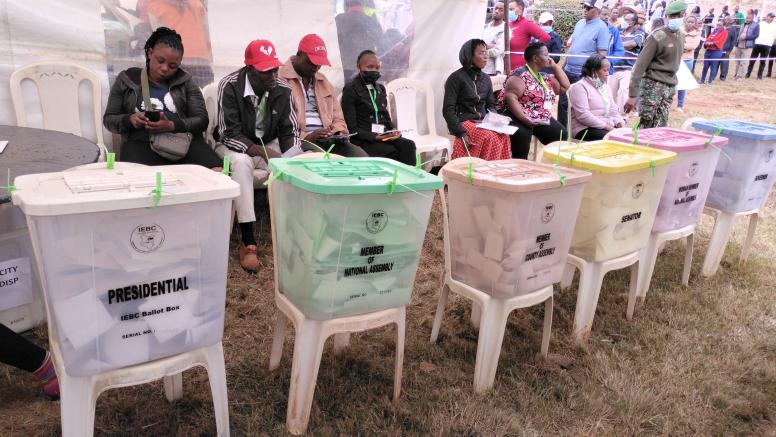
- Blog
- 6 octobre 2022
Women in leadership: how fear of violence is shaping women's political aspirations
- Author: Ján Michalko
Fear of violence was a key feature in the recent 2022 Kenyan elections. While much of the media attention focused on fears around large scale ‘ethnic violence’, instead violence against women materialised. This violence ranged from physical attacks on women, to sexualised attacks on social media aimed at discrediting female candidates’ dignity and reputation.
Many women in Kenya, however, refused to let fear stop them from challenging the gender norms at the heart of political spaces. The number of women elected has significantly increased since 2017 with Kenya now having 29 female Members of Parliament which is above the ‘reserved women’s seats’ threshold of 21, plus four additional women governors were elected bringing the total to seven. While these numbers do not meet the Kenyan constitutional rule of at least a third gender representation, they show a positive trajectory.
Role models such as Martha Karua, who was the first woman to run alongside a presidential candidate in recent times, and hundreds of women leaders throughout Kenya’s history, have encouraged women to run and to continue to shift norms around women’s leadership. But they do so at a cost. For more women to enter politics, the underlying misogynistic attitudes about women’s place and their expected roles in society, in other words, the underlying gender norms, need to fundamentally change.
How fear shapes women's political leadership and participation
A wide-spread trope claims that women are ‘just not interested in politics. Bauer and Darkwah remind us of the fallacy behind this stereotype in their research with women parliamentarians and candidates in Ghana. Rather than lack of ambition or desire to be in positions of political influence, it is the unjust institutions and systems, together with a litany of violent experiences, that deter women from seeking political office.
Fear of violence is one of many public, tangible elements of the society-wide and ever-present ‘female fear factory’, as South African scholar Professor Pumla Gqola describes it. In her analysis of gender-based violence, and rape culture in particular, Professor Gqola shows that the constant threat of violence women face is an exercise in power. Through manufacturing an atmosphere of fear, nobody dares to speak up or to challenge the status quo.
While more women are joining formal politics, many women are instead choosing to put their leadership skills to service elsewhere. Gretchen Bauer and Akosua Darkwah’s research also found that women are dissuaded from formal politics by various aspects of the political system itself. For example, strong elite networks between politicians and businesses prevent women who do not have connections or their own capital from gaining financial support or other resources to support their campaigns. Similarly, the district-based majoritarian system, which has a ‘winner takes all’ format, makes it harder for women to succeed, unlike proportional representation where people get elected based on the proportion of votes cast.
In my own research I discussed women’s leadership with a wide range of young women in South Africa. They told me that although they were inspired by the leadership of elite female politicians and other qualities found among their mothers, aunties, and friends, they found the corrupt, racist, and misogynist practices in politics to be a hostile space that they’d rather avoid.


© Shutterstock/Simon Libz ID:2188171371
What if women could lead in politics without fear?
A more multi-faceted approach to challenging gender norms is key to elevating more women into politics. For example, the use of certain types of quotas can contribute towards making a more enabling environment. The impact that quotas have on subverting the underlying patriarchal norms, however, is not straightforward. If not implemented alongside civic education and other measures, quotas can create tiers of women in politics or even generate backlash – as Berry, Bouka and Muthoni Kamuru revealed through their research in Kenya. Drawing on interviews and group discussions with people from four counties, they outlined how quotas brought more women into male-dominated spaces, but these women were then met with verbal, psychological and other forms of misogynistic violence. Abuse is especially pronounced against those entering through reserved seats because they are perceived to be less effective leaders.
When I followed the stories of female politicians vying for office in Kenya in this most recent election, I was reminded of my conversations with Kenyan colleagues nearly a decade ago. Back then, we would take lunch break walks through Nairobi’s Kilimani streets and lament about the frequent attacks on young women. The stories that were making headlines at the time included reports of women stripped in public and abused by mobs for wearing short dresses. The perpetrators punished these women because they offended the respectability standards that have been imposed on women for centuries, and which were in many parts of the continent established via colonial subjugation and the export of white middle class moral norms. For my female colleagues, the risk of public humiliation and violation they were exposed to as young professionals was a source of concern and fear which limited their sense of freedom to move and travel on public transport.
Philanthropists, donors, and all of us as individuals, can support initiatives, such as by The Ellen Johnson Sirleaf Presidential Center for Women and Development or The National Democratic Institute, which create an enabling environment for women to enter and thrive in politics. These initiatives provide women with training and know-how to increase their ability to succeed in political office. Enabling women in politics to deal with the challenges they face can also have a knock-on effect which encourages other women in government positions to exercise their agency. The initiatives also build networks of female politicians and showcase role-models to aspiring future political leaders. In this way, the next generation of future leaders access lived experiences, information, and a supportive community.
Similarly, we can support feminist movements and organisations that strive to change gender norms in health, employment, education, and the wider society. From the family and community to the workplace, gender norms in their intersections with other axes of privilege and oppression do not work in an isolated silo. So, to address the underlying values, which inform women’s access to, and success within, the political space, our efforts and strategies must be multi-faceted.
About the author - Ján Michalko


Ján is an experienced qualitative researcher with more than 10 years of experience in the international development sector. He works on a number of projects at ODI including ALIGN, which brings together global research on patriarchal gender norms and transformative change.
- Countries / Regions:
- Kenya
Related resources
Blog
10 février 2025

Blog
19 décembre 2024

Report
21 octobre 2024
